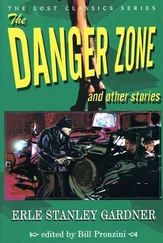Артур Дойл - Danger! and Other Stories
Здесь есть возможность читать онлайн «Артур Дойл - Danger! and Other Stories» — ознакомительный отрывок электронной книги совершенно бесплатно, а после прочтения отрывка купить полную версию. В некоторых случаях можно слушать аудио, скачать через торрент в формате fb2 и присутствует краткое содержание. Жанр: foreign_antique, foreign_prose, на английском языке. Описание произведения, (предисловие) а так же отзывы посетителей доступны на портале библиотеки ЛибКат.
- Название:Danger! and Other Stories
- Автор:
- Жанр:
- Год:неизвестен
- ISBN:нет данных
- Рейтинг книги:3 / 5. Голосов: 1
-
Избранное:Добавить в избранное
- Отзывы:
-
Ваша оценка:
- 60
- 1
- 2
- 3
- 4
- 5
Danger! and Other Stories: краткое содержание, описание и аннотация
Предлагаем к чтению аннотацию, описание, краткое содержание или предисловие (зависит от того, что написал сам автор книги «Danger! and Other Stories»). Если вы не нашли необходимую информацию о книге — напишите в комментариях, мы постараемся отыскать её.
Danger! and Other Stories — читать онлайн ознакомительный отрывок
Ниже представлен текст книги, разбитый по страницам. Система сохранения места последней прочитанной страницы, позволяет с удобством читать онлайн бесплатно книгу «Danger! and Other Stories», без необходимости каждый раз заново искать на чём Вы остановились. Поставьте закладку, и сможете в любой момент перейти на страницу, на которой закончили чтение.
Интервал:
Закладка:
It was a bad afternoon that for the P. and O. Company. The second ship which we destroyed was, as we have since learned, the Moldavia , of fifteen thousand tons, one of their finest vessels; but about half-past three we blew up the Cusco , of eight thousand, of the same line, also from Eastern ports, and laden with corn. Why she came on in face of the wireless messages which must have warned her of danger, I cannot imagine. The other two steamers which we blew up that day, the Maid of Athens (Robson Line) and the Cormorant , were neither of them provided with apparatus, and came blindly to their destruction. Both were small boats of from five thousand to seven thousand tons. In the case of the second, I had to rise to the surface and fire six twelve-pound shells under her water-line before she would sink. In each case the crew took to the boats, and so far as I know no casualties occurred.
After that no more steamers came along, nor did I expect them. Warnings must by this time have been flying in all directions. But we had no reason to be dissatisfied with our first day. Between the Maplin Sands and the Nore we had sunk five ships of a total tonnage of about fifty thousand tons. Already the London markets would begin to feel the pinch. And Lloyd’s – poor old Lloyd’s – what a demented state it would be in! I could imagine the London evening papers and the howling in Fleet Street. We saw the result of our actions, for it was quite laughable to see the torpedo-boats buzzing like angry wasps out of Sheerness in the evening. They were darting in every direction across the estuary, and the aeroplanes and hydroplanes were like flights of crows, black dots against the red western sky. They quartered the whole river mouth, until they discovered us at last. Some sharp-sighted fellow with a telescope on board of a destroyer got a sight of our periscope, and came for us full speed. No doubt he would very gladly have rammed us, even if it had meant his own destruction, but that was not part of our programme at all. I sank her and ran her east-south-east with an occasional rise. Finally we brought her to, not very far from the Kentish coast, and the search-lights of our pursuers were far on the western skyline. There we lay quietly all night, for a submarine at night is nothing more than a very third-rate surface torpedo-boat. Besides, we were all weary and needed rest. Do not forget, you captains of men, when you grease and trim your pumps and compressors and rotators, that the human machine needs some tending also.
I had put up the wireless mast above the conning-tower, and had no difficulty in calling up Captain Stephan. He was lying, he said, off Ventnor and had been unable to reach his station, on account of engine trouble, which he had now set right. Next morning he proposed to block the Southampton approach. He had destroyed one large Indian boat on his way down Channel. We exchanged good wishes. Like myself, he needed rest. I was up at four in the morning, however, and called all hands to overhaul the boat. She was somewhat up by the head, owing to the forward torpedoes having been used, so we trimmed her by opening the forward compensating tank, admitting as much water as the torpedoes had weighed. We also overhauled the starboard air-compressor and one of the periscope motors which had been jarred by the shock of the first explosion. We had hardly got ourselves shipshape when the morning dawned.
I have no doubt that a good many ships which had taken refuge in the French ports at the first alarm had run across and got safely up the river in the night. Of course I could have attacked them, but I do not care to take risks – and there are always risks for a submarine at night. But one had miscalculated his time, and there she was, just abreast of Warden Point, when the daylight disclosed her to us. In an instant we were after her. It was a near thing, for she was a flier, and could do two miles to our one; but we just reached her as she went swashing by. She saw us at the last moment, for I attacked her awash, since otherwise we could not have had the pace to reach her. She swung away and the first torpedo missed, but the second took her full under the counter. Heavens, what a smash! The whole stern seemed to go aloft. I drew off and watched her sink. She went down in seven minutes, leaving her masts and funnels over the water and a cluster of her people holding on to them. She was the Virginia , of the Bibby Line – twelve thousand tons – and laden, like the others, with foodstuffs from the East. The whole surface of the sea was covered with the floating grain. “John Bull will have to take up a hole or two of his belt if this goes on,” said Vornal, as we watched the scene.
And it was at that moment that the very worst danger occurred that could befall us. I tremble now when I think how our glorious voyage might have been nipped in the bud. I had freed the hatch of my tower, and was looking at the boats of the Virginia with Vornal near me, when there was a swish and a terrific splash in the water beside us, which covered us both with spray. We looked up, and you can imagine our feelings when we saw an aeroplane hovering a few hundred feet above us like a hawk. With its silencer, it was perfectly noiseless, and had its bomb not fallen into the sea we should never have known what had destroyed us. She was circling round in the hope of dropping a second one, but we shoved on all speed ahead, crammed down the rudders, and vanished into the side of a roller. I kept the deflection indicator falling until I had put fifty good feet of water between the aeroplane and ourselves, for I knew well how deeply they can see under the surface. However, we soon threw her off our track, and when we came to the surface near Margate there was no sign of her, unless she was one of several which we saw hovering over Herne Bay.
There was not a ship in the offing save a few small coasters and little thousand-ton steamers, which were beneath my notice. For several hours I lay submerged with a blank periscope. Then I had an inspiration. Orders had been marconied to every foodship to lie in French waters and dash across after dark. I was as sure of it as if they had been recorded in our own receiver. Well, if they were there, that was where I should be also. I blew out the tanks and rose, for there was no sign of any warship near. They had some good system of signalling from the shore, however, for I had not got to the North Foreland before three destroyers came foaming after me, all converging from different directions. They had about as good a chance of catching me as three spaniels would have of overtaking a porpoise. Out of pure bravado – I know it was very wrong – I waited until they were actually within gunshot. Then I sank and we saw each other no more.
It is, as I have said, a shallow sandy coast, and submarine navigation is very difficult. The worst mishap that can befall a boat is to bury its nose in the side of a sand-drift and be held there. Such an accident might have been the end of our boat, though with our Fleuss cylinders and electric lamps we should have found no difficulty in getting out at the air-lock and in walking ashore across the bed of the ocean. As it was, however, I was able, thanks to our excellent charts, to keep the channel and so to gain the open straits. There we rose about midday, but, observing a hydroplane at no great distance, we sank again for half an hour. When we came up for the second time, all was peaceful around us, and the English coast was lining the whole western horizon. We kept outside the Goodwins and straight down Channel until we saw a line of black dots in front of us, which I knew to be the Dover-Calais torpedo-boat cordon. When two miles distant we dived and came up again seven miles to the south-west, without one of them dreaming that we had been within thirty feet of their keels.
Читать дальшеИнтервал:
Закладка:
Похожие книги на «Danger! and Other Stories»
Представляем Вашему вниманию похожие книги на «Danger! and Other Stories» списком для выбора. Мы отобрали схожую по названию и смыслу литературу в надежде предоставить читателям больше вариантов отыскать новые, интересные, ещё непрочитанные произведения.
Обсуждение, отзывы о книге «Danger! and Other Stories» и просто собственные мнения читателей. Оставьте ваши комментарии, напишите, что Вы думаете о произведении, его смысле или главных героях. Укажите что конкретно понравилось, а что нет, и почему Вы так считаете.












